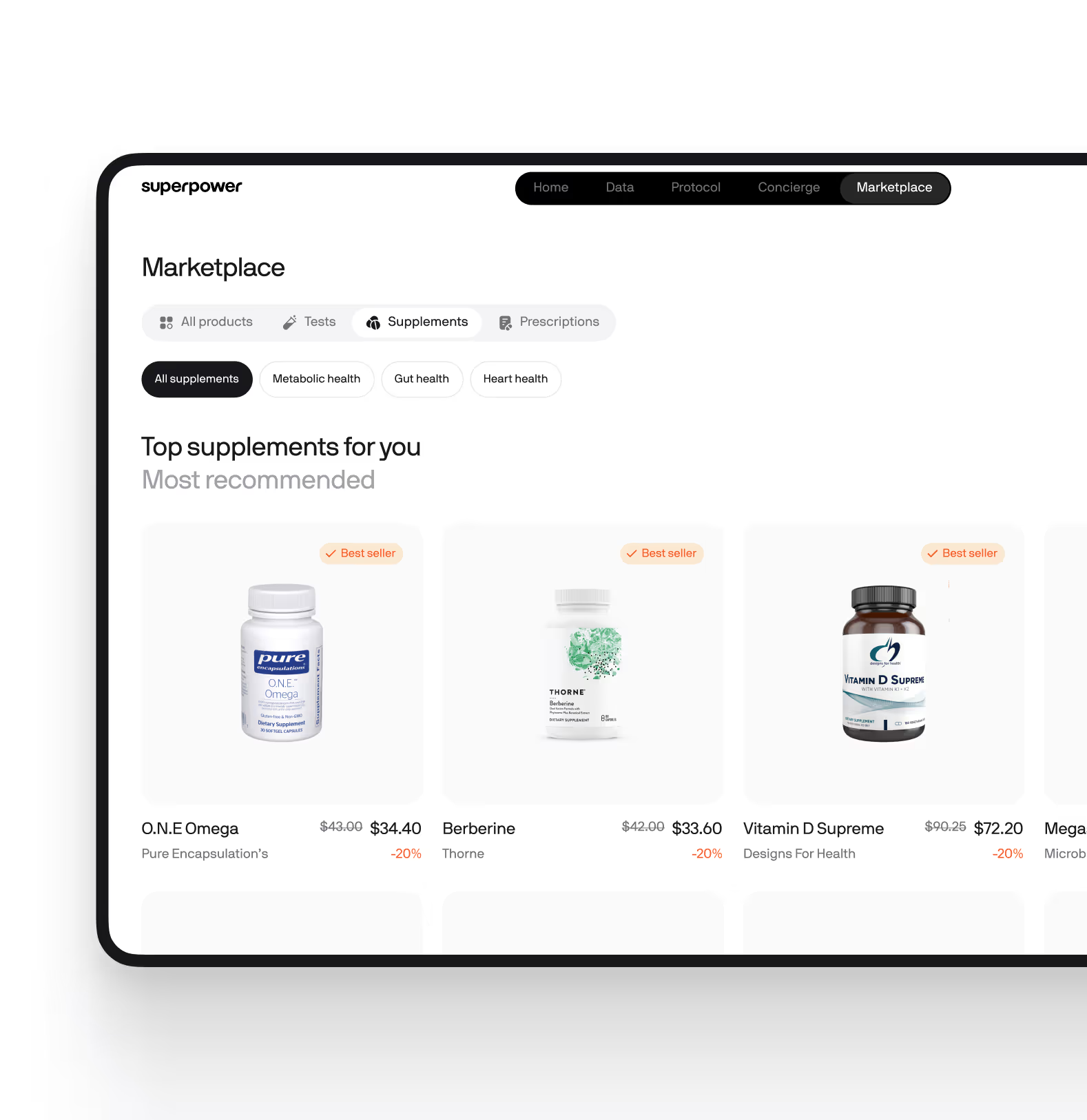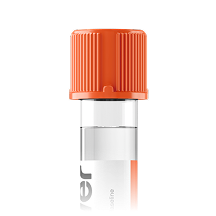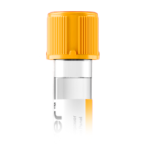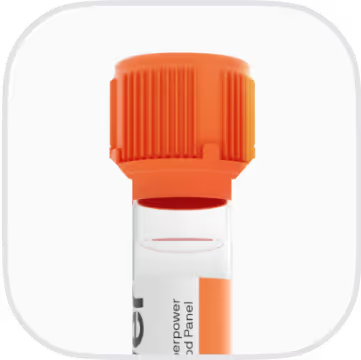Key Benefits
- Spot thyroid autoimmunity (Hashimoto’s) that can lead to low thyroid levels.
- Flag higher risk of future hypothyroidism, even when TSH is still normal.
- Clarify whether fatigue, weight gain, or hair loss reflect autoimmune thyroid inflammation.
- Guide treatment decisions in subclinical hypothyroidism when TPO positivity supports starting levothyroxine.
- Support preconception planning by prompting closer TSH monitoring and optimization before conception.
- Protect pregnancy by identifying women needing closer thyroid monitoring and trimester-specific TSH targets.
- Anticipate and monitor for postpartum thyroiditis in TPO-positive women after delivery.
- Best interpreted with TSH, free T4, and your symptoms over time.
What is a Thyroid Peroxidase Antibodies (TPO) blood test?
Thyroid peroxidase antibody testing looks for immune proteins that target a key thyroid enzyme. Thyroid peroxidase lives on the surface of thyroid hormone–making cells and helps attach iodine to the hormone’s building blocks. When the immune system produces antibodies against this enzyme, they circulate in the blood and can be measured. These are called thyroid peroxidase antibodies (TPO antibodies, anti‑TPO), and they are made by B cells in response to thyroid tissue. The enzyme they target—thyroid peroxidase (TPO)—works inside thyroid follicles to drive iodination and coupling of tyrosine on thyroglobulin, the essential steps that lead to making thyroid hormones (T3 and T4).
The significance of finding TPO antibodies is that they mark an autoimmune response directed at the thyroid (loss of immune tolerance). Their presence reflects thyroid-focused inflammation (autoimmune thyroiditis) and helps identify whether a person’s thyroid status is influenced by immune attack, most often in Hashimoto thyroiditis. TPO antibodies do not measure how much hormone you have; instead, they indicate that the machinery that builds those hormones is being targeted. Because this process can evolve over time, TPO antibodies flag current or future risk of immune-mediated changes in thyroid function.
Why is a Thyroid Peroxidase Antibodies (TPO) blood test important?
Thyroid peroxidase (TPO) antibodies reveal whether the immune system is targeting the TPO enzyme that builds thyroid hormone. Because thyroid hormone sets the body’s metabolic pace, immune attack on TPO can ripple across energy, heart rhythm, mood, thinking, digestion, skin and hair, fertility, and pregnancy. The test is therefore a window into autoimmune risk, not a measurement of hormone itself.
Most labs report a negative/normal value below a cutoff, and the physiologic “sweet spot” is as low as possible. Levels don’t mirror symptom intensity, but higher titers raise the likelihood of thyroid autoimmunity and future hypothyroidism.
When values are undetectable or within range, they reflect immune tolerance: the enzyme is not being targeted, thyroid tissue is preserved, and people typically have no symptoms from antibodies themselves. This lowers the probability of Hashimoto’s thyroiditis across ages, and in pregnancy it signals a lower risk of postpartum thyroiditis.
When values are elevated, they indicate autoimmune thyroiditis—even if thyroid hormone levels are still normal. Over time, this can reduce hormone production, leading to fatigue, cold intolerance, weight gain, constipation, dry skin, hair thinning, depression, and a firm or enlarged thyroid. Women are affected more often; in teens, evolving hypothyroidism can slow growth and affect school performance. During pregnancy, positivity is linked to higher risks of miscarriage, preterm birth, and postpartum thyroiditis. TPO antibodies can also accompany Graves disease and other autoimmune conditions.
Big picture: TPO antibodies flag immune pressure on the thyroid. Interpreted alongside TSH and free T4/T3, they help predict progression to hypothyroidism, with downstream effects on lipids, cardiovascular risk, cognition, mood, and reproductive health.
What insights will I get?
What a Thyroid Peroxidase Antibodies (TPO) blood test tells you.
This test measures immune proteins directed against thyroid peroxidase, the enzyme that enables thyroid hormone production. It is a window into thyroid autoimmunity. Because thyroid hormones regulate energy use, temperature, heart rhythm, lipids, cognition, mood, and reproduction, the presence or absence of these antibodies signals how stably the thyroid system may function over time.
Low values usually reflect little to no autoimmune targeting of the thyroid. Physiology is typically steady: the gland can make hormone without immune interference, supporting consistent metabolism and neurocognitive function. Low values are common in men and younger adults, and in pregnancy they generally indicate low risk for postpartum thyroid dysfunction.
Being in range suggests immune tolerance of thyroid tissue and a low likelihood of near‑term shifts in thyroid hormone levels. For most labs, within reference ranges tends to be at the low or undetectable end of the reference range, aligning with stable TSH–T4 regulation.
High values usually reflect an autoimmune response against thyroid tissue (autoimmune thyroiditis). This can precede or accompany too little thyroid hormone (hypothyroidism) and, less often early on, brief overactivity (hashitoxicosis). Many people remain euthyroid for years despite high titers. Positivity is more common in women, increases with age, and is frequent in Graves disease. In pregnancy, TPO positivity raises risk of miscarriage, preterm birth, and postpartum thyroiditis, and predicts a higher chance of hypothyroidism.
Notes: Reference cutoffs and assays vary, and titers do not reliably track disease severity. Antibody levels may fluctuate with time, pregnancy (often lower during gestation, higher postpartum), iodine exposure, and coexisting autoimmune conditions. High-dose biotin can interfere with some immunoassays.


.svg)









.avif)



.svg)





.svg)


.svg)


.svg)

.avif)
.svg)










.avif)
.avif)



.avif)







.png)

.avif)


